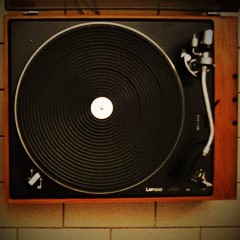2023-07-31
Did Albert King Really Struggle With Hitting Notes In Tune?
If you've ever listened to Albert King's music, then you know he was a master of blues guitar. His soulful playing style has been captivating audiences for decades - but it turns out there might be one thing he didn't quite have figured out: hitting notes in tune! For all the skill and virtuosity King put behind his solos, some say they often sounded...let’s just say “atypical” of what would normally come from an otherwise defining musical expression. Read on to discover why many people are criticizing Albert King, and see if this wild story is actually true!
Albert King is an unquestionable legend in the world of blues guitar. His gripping solos, heartfelt lyrics, and soulful playing style have made him an inspiration to aspiring guitarists since the 1960s. But are any of those famous solos actually out of tune? That’s the question we’re exploring today - whether or not Albert King struggled with hitting notes in tune.
It might seem like a strange question to ask of a musician as accomplished as King, but many critics have pointed out that his playing sometimes sounded off, even by blues standards. So what's the story - was he making musical choices outside of traditional theory, or was there a deeper issue at play?
First, it's worth noting that many of the early blues musicians who influenced Albert King, like Robert Johnson and T-Bone Walker, didn't exactly play by any prescribed set of rules. Instead, they played by feel, letting emotion guide the way they chose their notes. As a result, they occasionally hit notes that were slightly off, yet still felt right in the moment.
This tradition carried over into King's playing style. Rather than sticking to strict theoretical constructs, he frequently bent the notes he played, creating a sound that was simultaneously raw and emotive. He played with an intensity that often put traditional technicalities to the wayside, sacrificing pitch-perfect tuning for the feel of the song. This unbridled passion, along with his powerful voice, made his music all the more authentic and relatable to the blues-loving audience.
However, it's true that even during his early years, many listeners and fellow musicians pointed out that King’s music sometimes sounded out of tune. No one can deny that this was a stylistic choice and a part of King’s signature sound. Even if it was unintentional, the recognizable sound not only made his music unique but cemented his place in music history. Even when he would play a note that was not in tune, it managed to blend perfectly with the rest of the music, with the energy radiating from the stage.
But, as music production technology improved over the years, it became more easily noticeable that King's solos frequently fell shy of proper tuning. Some believe this may be due to a lack of formal training - King never learned to read or write music, and instead relied solely on his ear. It may have also been due to his use of jagged, worn strings and a heavy gauge of picks that stressed his wrists and fingers.
Another possible explanation for the slight dissonance in King’s music is simply that it comes down to musical interpretation. Much like how an artist or writer has their unique style and voice, musicians have their signature sounds as well. While conventional wisdom dictates that pitch-perfect tuning is an essential aspect of good music, listeners and critics alike can appreciate that sometimes, it’s the rough edges and imperfections that make a piece of music interesting. This is why some people love Albert's King music despite the imperfect notes.
So, did Albert King really struggle with hitting notes in tune? The answer might be more complex than a simple “yes” or “no.” While it's true that his solos don't always adhere to conventional standards of tuning, it’s important to note that King still created a unique and instantly recognizable sound that inspired countless musicians and touched the lives of millions. Listening to his music as an organic expression rather than a rigid pattern can put into perspective the different types of musicians that exists. In the final analysis, the “imperfection” in King’s music may have been a misunderstanding of an artist who created something new and different.
Albert King is an unquestionable legend in the world of blues guitar. His gripping solos, heartfelt lyrics, and soulful playing style have made him an inspiration to aspiring guitarists since the 1960s. But are any of those famous solos actually out of tune? That’s the question we’re exploring today - whether or not Albert King struggled with hitting notes in tune.
It might seem like a strange question to ask of a musician as accomplished as King, but many critics have pointed out that his playing sometimes sounded off, even by blues standards. So what's the story - was he making musical choices outside of traditional theory, or was there a deeper issue at play?
First, it's worth noting that many of the early blues musicians who influenced Albert King, like Robert Johnson and T-Bone Walker, didn't exactly play by any prescribed set of rules. Instead, they played by feel, letting emotion guide the way they chose their notes. As a result, they occasionally hit notes that were slightly off, yet still felt right in the moment.
This tradition carried over into King's playing style. Rather than sticking to strict theoretical constructs, he frequently bent the notes he played, creating a sound that was simultaneously raw and emotive. He played with an intensity that often put traditional technicalities to the wayside, sacrificing pitch-perfect tuning for the feel of the song. This unbridled passion, along with his powerful voice, made his music all the more authentic and relatable to the blues-loving audience.
However, it's true that even during his early years, many listeners and fellow musicians pointed out that King’s music sometimes sounded out of tune. No one can deny that this was a stylistic choice and a part of King’s signature sound. Even if it was unintentional, the recognizable sound not only made his music unique but cemented his place in music history. Even when he would play a note that was not in tune, it managed to blend perfectly with the rest of the music, with the energy radiating from the stage.
But, as music production technology improved over the years, it became more easily noticeable that King's solos frequently fell shy of proper tuning. Some believe this may be due to a lack of formal training - King never learned to read or write music, and instead relied solely on his ear. It may have also been due to his use of jagged, worn strings and a heavy gauge of picks that stressed his wrists and fingers.
Another possible explanation for the slight dissonance in King’s music is simply that it comes down to musical interpretation. Much like how an artist or writer has their unique style and voice, musicians have their signature sounds as well. While conventional wisdom dictates that pitch-perfect tuning is an essential aspect of good music, listeners and critics alike can appreciate that sometimes, it’s the rough edges and imperfections that make a piece of music interesting. This is why some people love Albert's King music despite the imperfect notes.
So, did Albert King really struggle with hitting notes in tune? The answer might be more complex than a simple “yes” or “no.” While it's true that his solos don't always adhere to conventional standards of tuning, it’s important to note that King still created a unique and instantly recognizable sound that inspired countless musicians and touched the lives of millions. Listening to his music as an organic expression rather than a rigid pattern can put into perspective the different types of musicians that exists. In the final analysis, the “imperfection” in King’s music may have been a misunderstanding of an artist who created something new and different.
Tag: Albert King, music artist, best songs, artist career
2022-11-01
The Musical Biography of Tayce
If you're a music enthusiast, then you're probably familiar with Tayce - the multi-talented artist who has made a huge impact in the music industry. Tayce is a singer, rapper, and songwriter who has created some of the most memorable hits in the past decade...read more
2022-01-01
UGK: Southern Hip Hop Legends Who Paved the Way
If you’ve ever wanted to get your old school hip-hop fix, then look no further than the critically acclaimed group UGK. These two Texas natives helped revolutionize Southern Hip Hop in the late 90s with their blend of gritty streets and unashamed storytelling...read more
2022-11-01
Peaking Lights: A Musical Biography
Peaking Lights is a Californian husband-wife duo who have become a staple in the experimental music scene. Their unique blend of psychedelic rock, dub, and electronic music has earned them a cult following and critical acclaim...read more
2022-11-01
The Musical Journey of Lunatic Calm: A Brief Biography
Music has undoubtedly been an integral part of human civilization since the dawn of time, with various musicians and bands carving their names in the sands of time. Lunatic Calm is one such artist who has left an indelible impact on the music world with his unique style and captivating beats...read more
2022-01-01
Analyzing the Success of Iyaz: A Singer-Songwriter’s Perspective
As a singer-songwriter, Iyaz has established himself as an undeniable force in the music industry. From his hits “Replay” to “Solo”, Iyaz has been able to craft a unique sound that speaks to listeners of all ages...read more
SUGGESTED PLAYLISTS








